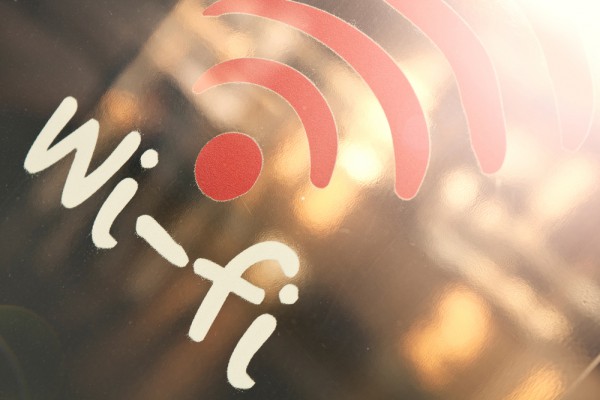The risks of public Wi-Fi and how to stay safe [Q&A]

The demands of daily lives increasingly mean that we want to be connected wherever we are. Add in the shift to hybrid working and we’re likely to want to be in touch with the office all the time too.
That makes the lure of free public Wi-Fi, whether it's in a coffee shop, a hotel or an airport, hard to resist, especially if you have a limited data allowance on your mobile contract. But of course using public networks always comes with a side order of added risk.
This is especially true as we approach the holiday season when people's guard is more likely to be down. We spoke to Suzanne Sangiovese, director of travel and technology at travel risk intelligence firm Riskline, to find out just how dangerous using these networks can be and how to protect yourself.
BN: What are the risks of using public Wi-Fi networks?
SS: Nowadays, it is impossible to separate our physical lives from our virtual lives. This means that much of our information, including work information, pictures, and personal data, is already available online. Using public Wi-Fi networks poses significant security risks. These networks, often found in places like airports, are convenient for staying connected but are not always secure. The open nature of public Wi-Fi makes it easier for hackers to intercept data, steal personal information, or infect your device with malware. Therefore, it's crucial to exercise caution and take additional security measures when using these networks to protect your valuable information.
BN: Are certain locations, like airports, particularly attractive to attackers?
SS: Airports are definitely among the list of locations that have open networks that attackers can prey on. However, it's not just about the location in terms of making a Wi-Fi network unsecure; using public Wi-Fi networks, in general, comes with risks. For example, there is also another type of method known as the 'evil twin' attack. This happens when hackers create a Wi-Fi network with a similar name, say, to the official network of an airport, in order to take advantage of the person's lack of attention and get it to connect, which can be very unfortunate if the person doesn't have extra security for their devices.
But are airports a major focus of attention for these types of malicious actions? The truth is that any place where there is a public connection and a high volume of people can be attractive to attackers, like coffee shops, hotels, libraries, and of course, an airport as well. According to a recent survey, out of the respondents who had their information compromised while using public Wi-Fi, 23 percent reported it happened at an airport. Despite this, we cannot say that a public Wi-Fi network is 100 percent insecure. This depends on the connection and how its security was set up; for example, if the networks ask for some type of authentication, i.e., a password or a type of registration, they may be more secure than others that are totally free.
BN: Is there an easy way to check if a network you're using is secure?
SS: Determining the security of a Wi-Fi network isn't always straightforward, but there are some basic checks you can perform to gauge its level of safety. Look for networks that use WPA3 or WPA2 encryption. You can usually find this information in the network settings or properties. Be cautious of networks with suspicious or generic names like 'Free Wi-Fi' or 'Public Network.' When you're browsing the internet, look for 'https://' in the website URL. This indicates that the website traffic is encrypted.
BN: What can people do to protect themselves if they have to use public networks?
SS: If you have to use a public network, there are some quick and easy things to do to offer protection that is better than nothing. First, use a virtual private network (VPN) that encrypts your internet connection, making it more difficult for hackers to intercept your data. For accounts that support it, multi-factor authentication (MFA) adds an extra layer of security, making it more difficult for unauthorized users to gain access. Also, you'll want to make sure your device's operating system and security software are up-to-date. And finally, once you're done browsing, always choose 'Forget This Network' to prevent your device from automatically reconnecting in the future.
BN: How important is education to make people more aware of the risks?
SS: Very important -- we must continue to raise awareness of these risks. When talking about these issues, it is not about generating panic but about presenting solutions, alternatives, or options to increase security for travelers. With so many advances and changes, it's often difficult to keep up with them all, let alone be aware of the risks. Again, the large amount of personal data we use today should also push us to be more careful. Just as connectivity brings so many opportunities, this same process can also increase threats.
Image Credit: Sidarta / Shutterstock
